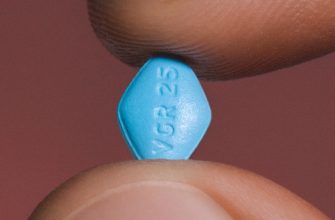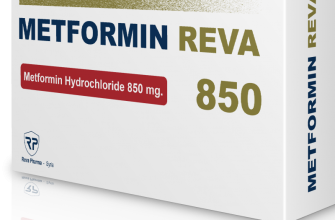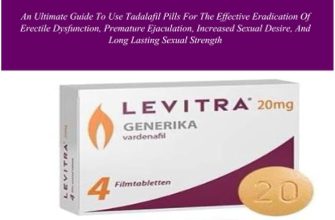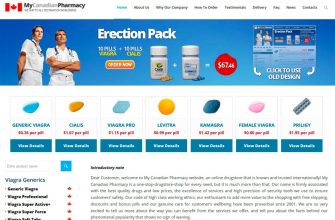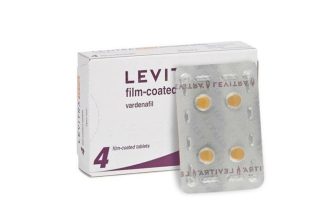Yes, prednisone can cause mouth sores, a side effect known as oral thrush or candidiasis. This occurs because prednisone weakens the immune system, allowing the Candida fungus, naturally present in the mouth, to overgrow.
The severity varies; some experience mild discomfort, while others develop painful, white patches. Symptoms often include redness, burning, and difficulty swallowing. If you’re taking prednisone and notice these symptoms, contact your doctor immediately. Early diagnosis and treatment are key.
Your doctor might recommend an antifungal medication, such as nystatin or fluconazole, to combat the infection. Maintaining good oral hygiene is also critical. This includes brushing and flossing regularly and rinsing your mouth with a gentle, alcohol-free mouthwash. Proactive measures can significantly reduce the risk and severity of mouth sores.
Remember, this information is for general knowledge and doesn’t replace professional medical advice. Always consult your physician or pharmacist before making any changes to your medication or treatment plan. They can assess your specific situation and provide tailored recommendations.
- Can Prednisone Cause Mouth Sores?
- What are the common side effects of Prednisone?
- Gastrointestinal Issues
- Other Side Effects
- Common Prednisone Side Effects Summary
- How Prednisone Affects the Immune System and Oral Health
- The Link Between Prednisone and Oral Thrush (Candidiasis)
- Symptoms of Oral Thrush
- Managing Oral Thrush While on Prednisone
- Preventing Oral Thrush
- Other Potential Causes of Mouth Sores While on Prednisone
- Recognizing Prednisone-Related Mouth Sores: Symptoms and Appearance
- Treatment Options for Mouth Sores Associated with Prednisone
- Over-the-Counter Remedies
- Prescription Medications
- Lifestyle Changes
- When to See a Doctor
- Disclaimer:
- Prevention Strategies and Managing Prednisone Side Effects
Can Prednisone Cause Mouth Sores?
Yes, prednisone can cause mouth sores, a side effect known as oral thrush or candidiasis. This happens because prednisone weakens your immune system, allowing the Candida fungus, naturally present in your mouth, to overgrow.
Symptoms include white patches or creamy lesions on your tongue, gums, or inner cheeks. These sores can be painful and may bleed easily. You might also experience a burning sensation or altered taste.
If you suspect prednisone-induced mouth sores, contact your doctor. They can diagnose the condition and recommend treatment, possibly including antifungal medication like nystatin or clotrimazole.
Preventive measures include: meticulous oral hygiene–brush and floss gently after every meal–and staying well-hydrated. Avoid mouthwashes containing alcohol, as these can further irritate the sores.
Important Note: This information is for general knowledge and does not replace professional medical advice. Always consult your doctor for diagnosis and treatment of any medical condition.
What are the common side effects of Prednisone?
Prednisone, while effective, can cause several side effects. Many are dose-related, meaning higher doses increase the likelihood and severity. Common side effects include weight gain, primarily due to fluid retention and increased appetite. You might also experience increased blood sugar levels, potentially leading to hyperglycemia, so regular monitoring is crucial. Mood changes, such as irritability or anxiety, are also relatively frequent.
Gastrointestinal Issues
Prednisone can irritate your stomach lining, causing indigestion, heartburn, or even ulcers. Increased risk of infections is another potential side effect, as prednisone suppresses your immune system. You might notice changes in your sleep patterns, experiencing insomnia or increased fatigue.
Other Side Effects
Muscle weakness and thinning of bones (osteoporosis) are also possibilities with long-term prednisone use. Skin changes like thinning skin, easy bruising, and acne are common. Finally, prednisone can elevate blood pressure. Remember to discuss any concerns with your doctor.
Common Prednisone Side Effects Summary
| System | Side Effects |
|---|---|
| Metabolic | Weight gain, increased blood sugar, increased appetite |
| Gastrointestinal | Indigestion, heartburn, ulcers |
| Musculoskeletal | Muscle weakness, bone thinning |
| Neurological | Mood changes (irritability, anxiety), insomnia, fatigue |
| Integumentary | Thinning skin, easy bruising, acne |
| Cardiovascular | Elevated blood pressure |
| Immune | Increased risk of infection |
How Prednisone Affects the Immune System and Oral Health
Prednisone, a corticosteroid, suppresses your immune system. This means your body’s ability to fight off infections, including those causing mouth sores, decreases.
Reduced immune function increases your susceptibility to oral candidiasis (thrush), a fungal infection manifesting as white patches or sores in your mouth. Bacterial infections, also leading to mouth sores, become more likely.
Dry mouth, a common side effect of prednisone, further compromises oral health. Saliva protects against infection; its reduction leaves your mouth more vulnerable.
Maintaining excellent oral hygiene is paramount while on prednisone. Brush and floss gently, at least twice daily. Use a soft-bristled toothbrush to avoid irritating already sensitive gums.
Regular dental check-ups are recommended. Early detection of oral problems allows for prompt treatment, preventing complications.
Consider using a fluoride mouthwash to strengthen tooth enamel. This added protection helps prevent cavities and gum disease, which can exacerbate mouth sores.
Stay hydrated. Drinking plenty of water helps combat dry mouth and supports overall health, reducing the risk of infection.
Report any mouth sores or changes in your oral health to your doctor or dentist immediately. Early intervention is key to effective management.
The Link Between Prednisone and Oral Thrush (Candidiasis)
Prednisone, a corticosteroid, can increase your risk of oral thrush, also known as candidiasis. This fungal infection, caused by Candida albicans, thrives in environments with reduced immune function. Prednisone suppresses the immune system, creating a favorable environment for Candida to overgrow.
Symptoms of Oral Thrush
Oral thrush presents as creamy white lesions or patches on your tongue, inner cheeks, gums, or throat. These lesions may be painful or cause a burning sensation. You might also experience difficulty swallowing or a change in taste.
Managing Oral Thrush While on Prednisone
If you suspect oral thrush, consult your doctor immediately. They can diagnose the infection and prescribe an antifungal medication, such as nystatin or fluconazole, to effectively treat it. Maintaining excellent oral hygiene–brushing and flossing regularly–can help prevent and manage oral thrush. Rinsing your mouth with a gentle salt water solution might also provide some relief from discomfort. Remember, managing oral thrush while on prednisone requires consistent treatment and proactive oral care.
Preventing Oral Thrush
While on prednisone, be mindful of your oral health. Practice diligent oral hygiene, and consider using a sugar-free mouthwash to minimize Candida growth. If you develop any concerning symptoms, promptly contact your physician.
Other Potential Causes of Mouth Sores While on Prednisone
While prednisone can contribute to mouth sores, other factors frequently play a role. Understanding these helps you address the problem comprehensively.
Firstly, consider your oral hygiene. Insufficient brushing and flossing directly increase your risk of developing canker sores and other infections. Aim for brushing twice daily with fluoride toothpaste and flossing once daily.
- Nutritional Deficiencies: Deficiencies in iron, vitamin B12, or folic acid can impact oral health. Consult your doctor about a blood test to check your levels. Supplementing, if needed, can help.
- Infections: Viral infections like herpes simplex virus (HSV) or fungal infections like oral thrush are common mouth sore culprits. Your doctor can diagnose and treat these with antivirals or antifungals.
- Trauma: Accidental biting, ill-fitting dentures, or even aggressive brushing can injure the mouth lining, leading to sores. Gentle care is key.
- Certain Medications: Some medications, besides prednisone, have oral side effects. Review your current prescriptions with your doctor or pharmacist.
- Allergies: Food allergies or sensitivities to toothpaste ingredients might trigger mouth irritation. Keep a food diary and consider switching to a hypoallergenic toothpaste.
Addressing these possibilities alongside any prednisone-related effects offers a more complete approach to managing your mouth sores. If symptoms persist or worsen, promptly seek professional medical advice.
- Keep a detailed record: Note the type, location, and duration of sores, as well as any potential triggers like specific foods or activities.
- Consult your doctor: They can provide a proper diagnosis and create a treatment plan that addresses all potential causes.
Recognizing Prednisone-Related Mouth Sores: Symptoms and Appearance
Prednisone mouth sores often appear as small, painful ulcers. These ulcers typically present on the tongue, inner cheeks, gums, or the roof of the mouth.
You might experience a burning sensation before the sores visibly develop. The sores themselves can be white or yellowish in color, and are usually surrounded by a reddish, inflamed area. They can range in size from tiny pinpricks to larger lesions, depending on the severity of the reaction.
Some individuals report experiencing dryness in their mouth alongside the sores. Others may notice bleeding from the ulcers, especially when eating or brushing their teeth. The pain associated with these sores can make eating and drinking difficult.
If you suspect prednisone is causing your mouth sores, document their appearance and note any accompanying symptoms. This information will be valuable when discussing your condition with a healthcare professional. Early identification allows for timely intervention and potentially helps minimize discomfort.
Treatment Options for Mouth Sores Associated with Prednisone
Managing mouth sores linked to prednisone requires a multifaceted approach. Your doctor is your best resource, but here are some common strategies.
Over-the-Counter Remedies
- Oral analgesics: Acetaminophen or ibuprofen can ease pain. Follow package directions carefully.
- Topical anesthetics: Products containing benzocaine or lidocaine can numb the sores, providing temporary relief. Apply as directed.
- Mouthwashes: Saltwater rinses (1/4 to 1/2 teaspoon salt in 8 ounces of warm water) can soothe irritation. Some commercially available mouthwashes, such as those containing chlorhexidine, may also help, but check with your doctor or pharmacist before use.
- Topical corticosteroids: Over-the-counter hydrocortisone creams (low potency) may help reduce inflammation, but only use them as directed and after checking with your doctor.
Prescription Medications
For persistent or severe sores, your doctor might prescribe:
- Prescription-strength topical corticosteroids: These are stronger than over-the-counter options and can provide greater relief.
- Antiviral medication: If a viral infection is contributing to the sores, antiviral drugs might be necessary.
- Immunosuppressant adjustments: Your doctor might adjust your prednisone dosage or consider alternative immunosuppressants to minimize side effects, including mouth sores.
Lifestyle Changes
- Dietary adjustments: Avoid acidic, spicy, or hard-to-chew foods that irritate sores. Stick to soft, bland foods.
- Hydration: Drinking plenty of water promotes healing and helps prevent dehydration.
- Avoid smoking and alcohol: These substances can further irritate your mouth.
When to See a Doctor
Seek immediate medical attention if you experience severe pain, bleeding, difficulty swallowing, or sores that don’t improve within a week despite home treatment.
Disclaimer:
This information is for educational purposes only and does not constitute medical advice. Always consult your doctor or other qualified healthcare professional for diagnosis and treatment of medical conditions. Never disregard professional medical advice or delay in seeking it because of something you have read online.
Prevention Strategies and Managing Prednisone Side Effects
Maintain excellent oral hygiene. Brush your teeth and floss gently at least twice daily. Consider using a soft-bristled toothbrush to avoid irritating already sensitive gums.
Stay hydrated. Drink plenty of water throughout the day. Adequate hydration supports overall health and helps prevent dryness, a common contributor to mouth sores.
Eat a balanced diet. Focus on foods that are soft, moist, and easy to chew. Avoid spicy or acidic foods that might further irritate mouth sores. Include plenty of fruits and vegetables rich in vitamins and antioxidants.
Use a mouthwash. Rinse your mouth with a mild salt water solution (1/4 to 1/2 teaspoon of salt dissolved in 8 ounces of warm water) several times a day. Your doctor might also recommend a prescription mouthwash.
Take prednisone as directed. Strictly adhere to your doctor’s prescription and dosage instructions. Never adjust your dosage without consulting your physician.
Monitor your mouth regularly. Check for any signs of mouth sores or other abnormalities. Report any concerns immediately to your doctor or dentist.
Consider a steroid-sparing agent. Your doctor may prescribe another medication to reduce the prednisone dosage, thereby minimizing side effects. Discuss this option during your consultation.
Important Note: This information is for general knowledge and does not constitute medical advice. Always consult your doctor or dentist for personalized guidance regarding prednisone use and management of its side effects.


